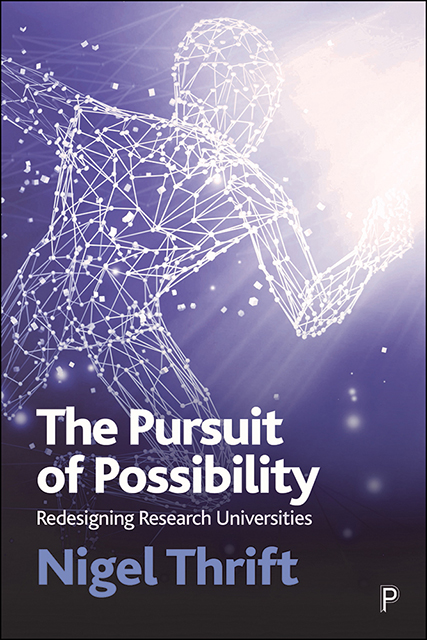8 - So What is a Research University?
Published online by Cambridge University Press: 21 June 2023
Summary
Let me summarise the argument of this book so far. The problem in UK higher education is that, like the British natural environment, British research universities are the victims of a receding baseline. Things that we would never have envisaged are coming true, things that we all cleaved to have gone extinct, things that were threats have become realities. But we have all got so used to the situation that we are becoming inured to it. We are in danger of becoming the educational equivalent of that night-time blizzard of moths which used to smear the car windscreen when the headlights were on which we can now only tell our children about. This is not to say that all is doom. To the contrary. The basics of British research universities are still very, very strong. But the threat is there, unfortunately.
Of course, there are many reasons for the current situation and not least student number growth but I am increasingly of the view that research universities keep offering the same answers to questions that are no longer being asked, to use the famous phrase that Peter Drucker deployed to explain why organisations fail. In the face of many substantial changes, from the acceleration of online education to the rise of for-profit higher education, from the continuing problems of student finance to the not so gradual encroachment of government, from the relative disinterest in discovery research to erosion of research time, these are difficult times for UK research universities. But in the face of these provocations they tend to keep on repeating the same old, same old answers which act as a salve but do little to stop various other institutions setting the agenda by simply ignoring these answers because they were never interested in the questions universities thought they’d want to ask.
Why this bit of a mess? Five reasons. One is that the research universities keep being included with all universities. The case needs to be made unashamedly for why they are different and cannot be part of the pack, while still retaining strong links with the overall higher education ecosystem.
- Type
- Chapter
- Information
- The Pursuit of PossibilityRedesigning Research Universities, pp. 213 - 240Publisher: Bristol University PressPrint publication year: 2022



